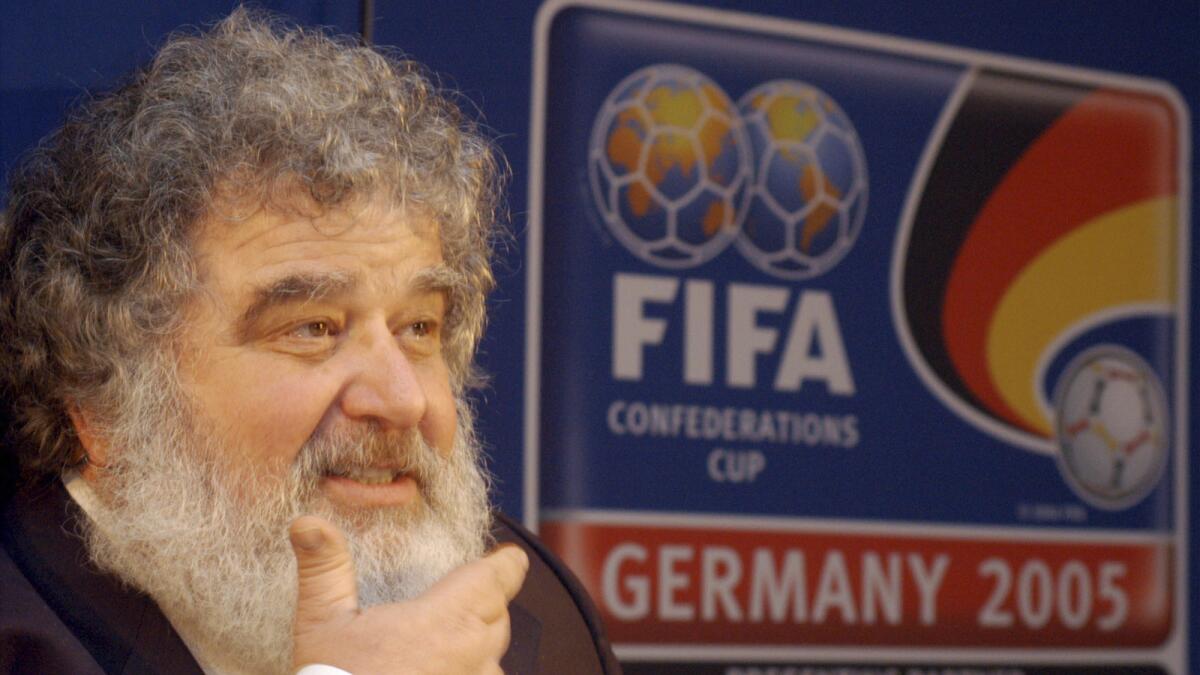Chuck Blazer began cooperating with FIFA investigation in 2011

Chuck Blazer, a former U.S. representative on FIFA’s executive commitee, entered a plea deal with prosecutors in 2013.
- Share via
Chuck Blazer’s much-discussed role as an undercover informant for the investigation of FIFA by the U.S. Justice Department and other federal agencies was confirmed Monday when his plea agreement was unsealed.
The 19-page document signed Nov. 25, 2013, included the caveat that Blazer would “participate in undercover activities pursuant to the specific instructions of law enforcement agents …”
Blazer, a member of FIFA’s executive committee from 1997 to 2013, pleaded guilty to 10 counts that included racketeering conspiracy and tax evasion.
He admitted to accepting bribes in exchange for his support in selecting a host country for the 2010 World Cup in a transcript of a secret hearing in U.S. District Court in Brooklyn to discuss the plea agreement in 2013.
U.S. District Judge Raymond J. Dearie unsealed the transcript earlier this month in the wake of the indictment of 14 high-ranking FIFA officials and businessmen. Four others, including Blazer, have pleaded guilty in the scandal that has rocked the world’s most popular sport.
The plea agreement indicated that Blazer -- also the general secretary at CONCACAF, which oversees soccer in North America, Central America and the Caribbean, from 1990 to 2011 -- cooperated with federal authorities since at least December 2011.
Blazer agreed to forfeit more than $1.9 million -- including his FIFA pension -- plus a second amount to be determined in exchange for sentencing concessions by federal prosecutors. He also pledged to testify in court proceedings and not contest any ban issued against him by FIFA or any other soccer organization.
While federal prosecutors said that they would not recommend a specific sentence, Blazer faced a maximum of 75 years in prison.
Federal prosecutors argued against unsealing the plea agreement, according to a memorandum by Dearie last week, saying that it would alert targets to “the scope and nature of the government’s evidence” and that making Blazer’s cooperation public could “jeopardize his safety.”
Dearie disagreed, writing that he found the plea agreement to contain “nothing that is particularly illuminating about the nature or scope of Blazer’s cooperation.”
More to Read
Go beyond the scoreboard
Get the latest on L.A.'s teams in the daily Sports Report newsletter.
You may occasionally receive promotional content from the Los Angeles Times.











